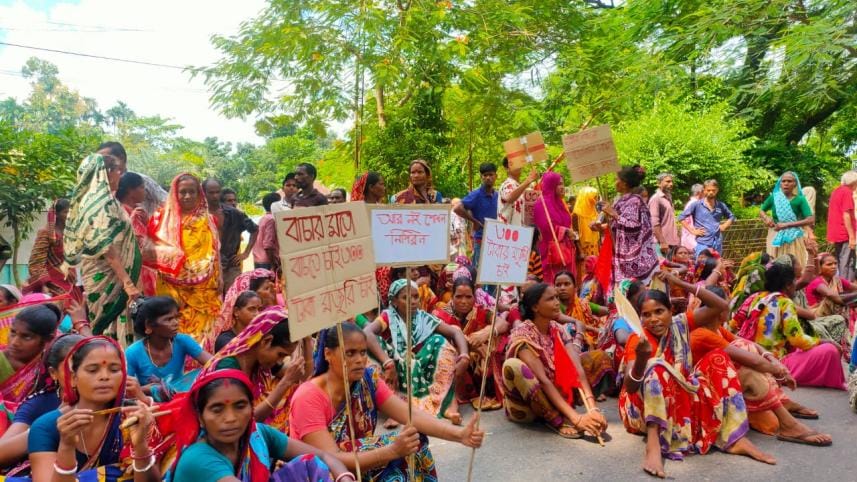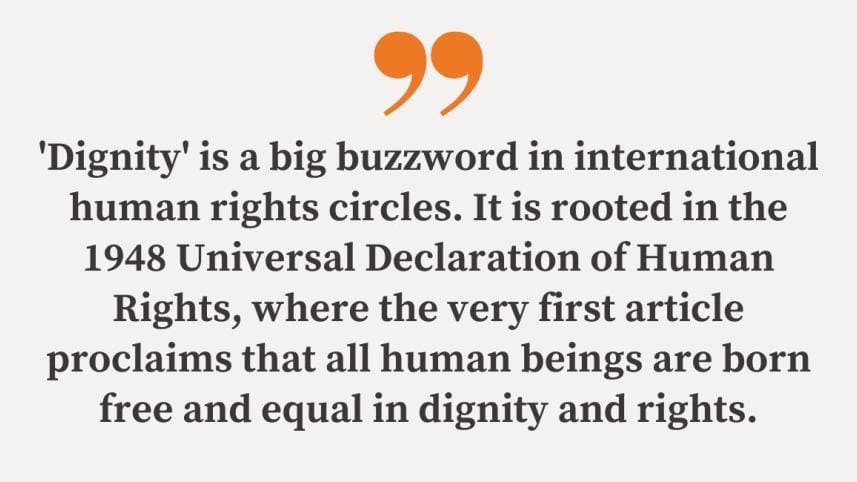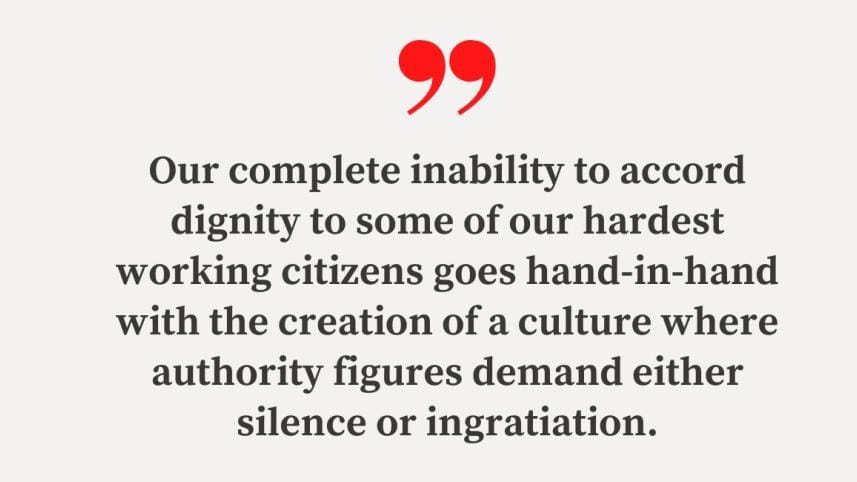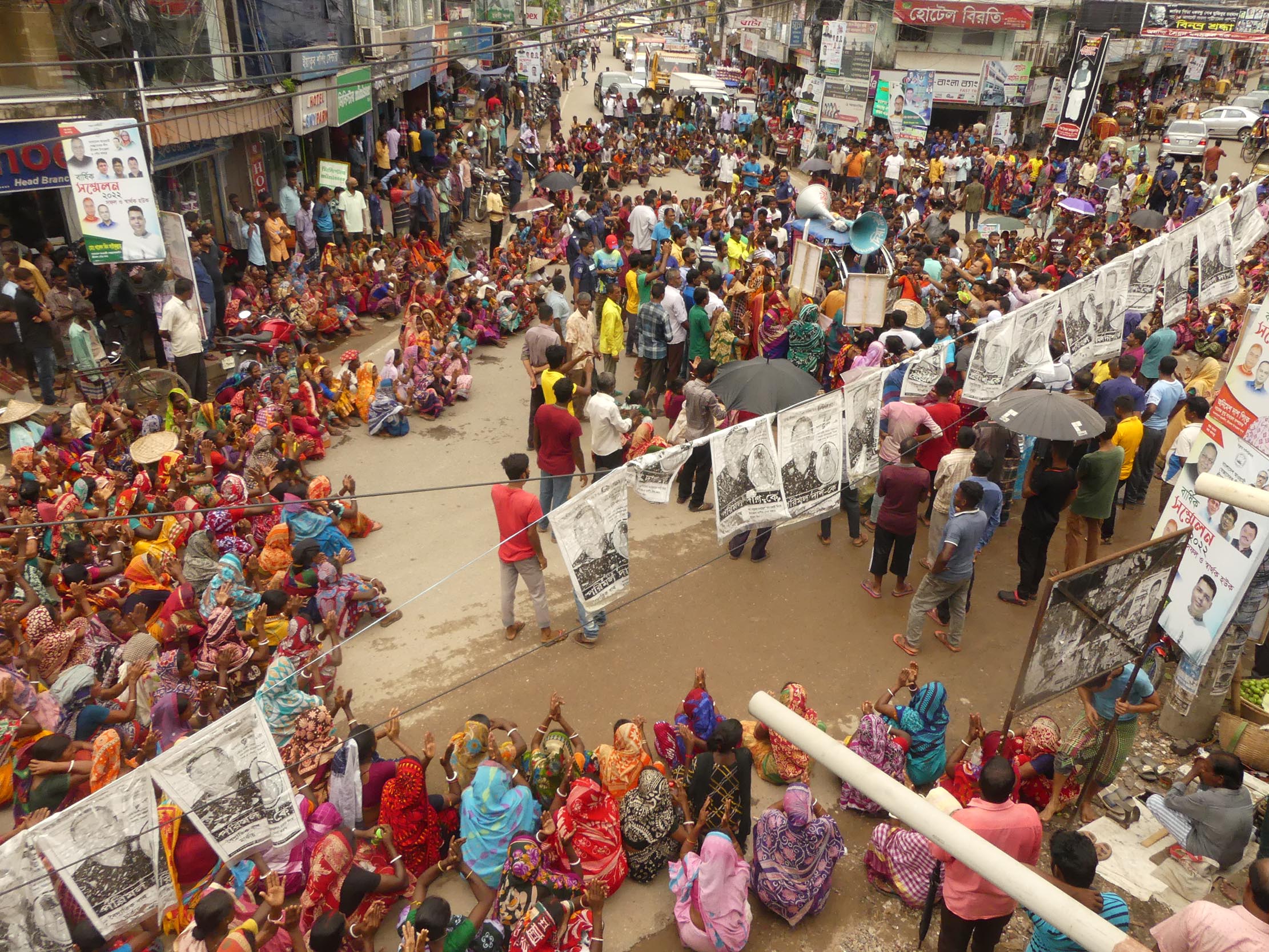Have we forgotten about dignity?

I've been thinking a lot about dignity lately. I initially sat down to write about one of the (too) many pressing issues that have dominated news headlines over the past month. I considered writing about corruption in the public sector, or the spiralling costs of living. I thought about writing on how ordinary people are struggling to pay their bills even as the super-rich continue to line their pockets with taxpayers' money through dodgy energy contracts that reward them for producing zero electricity. I even briefly considered writing about the stress on our foreign exchange reserves, before accepting that there are experts who are far more suited to speak on this than me.
In the midst of my research, I came across a sentence that I now can't seem to get out of my head: "The dignity of the human person is not only a fundamental right in itself, but constitutes the real basis of fundamental rights."
Apparently, "dignity" is a big buzzword in international human rights circles. It is rooted in the 1948 Universal Declaration of Human Rights, where the very first article proclaims that all human beings are born free and equal in dignity and rights. In recent years, the right to "die with dignity" has also come up in the countries that are having conversations around assisted dying in the final stages of life. It's a simple, albeit slightly morbid, concept stemming from a sense of self – the right to hold one's head high and be treated with respect, regardless of what position in life one is.
This sense of self, I believe, is deeply rooted in our culture. Sometimes it can take a toxic turn, where an entire family's "honour" (or shame) is associated with the behaviour of its members, especially the women. But a lot of the time, it is simply a quiet wish in the life of every Bangladeshi who just wants a roof over their heads, some food on their plates, and some stability, security and dignity for themselves and their families. And as we saw in 1971, when this quiet wish to not bow your heads among equals is not met, it eventually turns into a deafening roar for change.
In recent decades, Bangladeshis have seen a lot of change. For a long while now, our main buzzword has been "development." And it is true that, despite the blow of the pandemic and the subsequent global economic downturn, we have still seen a great deal of it. We have been labelled as one of the fastest growing economies in the world, we've seen major structural changes and social transformation, and we've done really well in a number of human development indicators.

Of course, there is a growing concern that all this development has come at the expense of democracy and rights. Yet, a lot of the time when these concerns are raised, a common response is that at least over the last 50 years, this poor, war-torn nation has transformed itself into an almost middle-income nation where basic needs are met. And the question that I can't stop thinking about is: Shouldn't dignity be a part of these basic needs? And has this basic need for dignity been met?
I doubt there are too many people in this country who, if circumstances allow, don't begin their day with a cup of tea. Yet, for days, the workers who produce this commodity that is so precious to us had to go on strike to demand a decent living wage. Their demands eventually fell on deaf ears, and they had to make do with an increase of Tk 50 in their daily wage. Even then, this was considered generous by the usual standards, since the last time they got a raise, it was by Tk 18.
Supporters of tea estate owners took to social media to proclaim that tea workers are actually quite well-off because their employers also provide them with rations, housing, and schools for their children. It doesn't matter that they didn't actually choose to trade their wages for these substandard "benefits." No big deal that, in the long run, these "benefits" actually contribute to tying their labour, and that of their future generations, to their employers' land. No, what matters is that these people are given a handout and they should just keep their heads down and their palms out, and be grateful with whatever they're given.
Tea is not the only industry where we are happy to consume the fruits of others' labour, while not only ignoring their right to choose how to organise their life, but all the while acting like we are doing them a great favour by providing them employment (that we ultimately benefit from). The RMG sector is an example of this, where you routinely hear tone-deaf industry leaders talk about how much they have done for female workers, instead of talking about how much money these workers have put into their pockets.
During the pandemic, we heard a lot of talk about valuing health workers who were risking their lives to provide care to patients. Yet, if you were to walk into a hospital right now, you would see "ward boys" and "ayahs" being ordered around, zero respect being shown for the services they provide. We talk about food security, but do we value the labour that agricultural workers put in to produce the food on our tables? How often do you end up referring to someone who is of a "lower class" to you as tui, even if you aren't that familiar with them? We fixate on the economic importance of migrant workers' remittances – which in August crossed the USD 2 billion mark for the second consecutive month – yet, how annoyed would you be if a migrant worker sat next to you on a flight and asked for help in filling out their passenger form?

You might be thinking, surely there is too much happening in the world right now to be hung up on this. But in my opinion, this isn't an individual issue. Our complete inability to accord dignity to some of our hardest working citizens goes hand-in-hand with the creation of a culture where authority figures demand either silence or ingratiation. So when police officers abuse power, when public sector officials take bribes, when employers refuse weekly holidays, and when universities moral-police their students, the norm is to just grit your teeth and take it.
And it's not just living with dignity that seems a distant reality for so many people in this country. It's dying with dignity, too. Take, for example, the Chawkbazar fire last month, where six employees of a road-side restaurant finished working all night, went to rest in a break room, and were burnt to death from a fire originating from a plastic factory in the same building. They were all young, working men from ordinary backgrounds. Their injuries were so severe that only one person could be identified for certain. It's possible, though, that after a gruelling night shift, they fell asleep quickly and asphyxiated from the smoke before the fire even touched their bodies. And as always is the case with these "accidents" that continue to happen over and over again due to corporate negligence, a probe committee was formed, nothing came of it, and we all forgot about them.
But if the people in a country with so much development and so much progress can't even expect a dignified death, then what was it all for?
Shuprova Tasneem is a member of the Editorial team at The Daily Star. Her Twitter handle is @ShuprovaTasneem




 For all latest news, follow The Daily Star's Google News channel.
For all latest news, follow The Daily Star's Google News channel. 

Comments